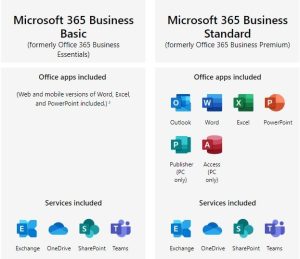Many queries end up here due to confusion surrounding this question. So, lets start with what Microsoft Office 365 isn’t …. it isn’t a single product. It is in fact an extensive collection of products; anything from a simple email box to a complete cloud-based ecosystem with software such as Word, Outlook, Excel included.
Some products can be purchased individually and some only as “bundles” of these same products depending on whether you are a home user, small business, enterprise or educational user. Confused? No idea on how to start pricing this up? I guess that is why you are here.
I typically find it useful to start with a couple of scenarios in the small business space

